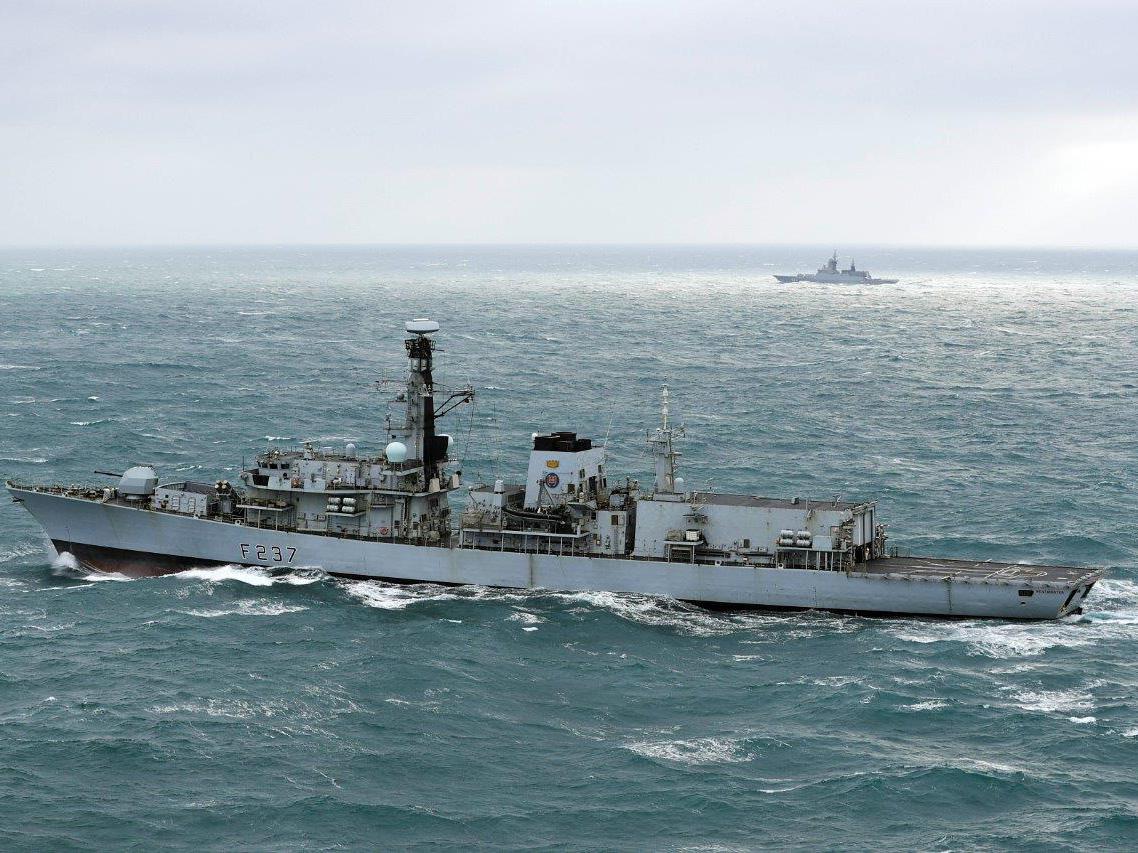Russian warships escorted through British waters
HMS Westminster escorts two frigates and two support vessels after they come into 'area of national interest'

A Royal Navy frigate was sent to intercept two Russian warships sailing through the English Channel.
The Ministry of Defence confirmed the HMS Westminster escorted the pair, along with two supporting vessels after they came into the Royal Navy’s “area of national interest”.
It said the Portsmouth-based Type 23 frigate joined them as they passed close to UK territorial waters in stormy conditions.
The frigate will remain at sea as it escorts as the two Steregushchiy-class frigates, Soobrazitelny and Boiky along with support vessels Paradoks and Kola as they head north.
Commander Simon Kelly, the Commanding Officer of HMS Westminster, said his ship's "role as the Royal Navy’s Fleet Ready Escort is to be at very high readiness to respond to anything the British government requires."
He added: “While today most people are returning to work for the first time in the New Year, HMS Westminster’s ship’s company has been at sea and at readiness as part of the Royal Navy’s commitment to keep Britain safe at all times.
“The English Channel is an absolute lifeline for the UK, and it is very important HMS Westminster and the Royal Navy maintains a watchful eye on this key strategic link.”
It is believed the ships were returning to the Baltic after carrying out operations in the Middle East.
The English Channel is one of the world’s busiest shipping lanes and contributes £10bn to the British economy annually.
The incident is one of several interventions the Royal Navy has made against Russian ships in recent weeks.
HMS St Albans was deployed to escort another Russian ship, the Admiral Gorshkov, through the Channel over the Christmas period while the HMS Tyne escorted a Russian intelligence-gathering ship through the North Sea and onto the Channel on Christmas Eve.
The Royal Navy and the Royal Air Force have been kept busy by incursions into British airspace and territorial waters in the few years as tensions with the Kremlin has increased.
The West has been at odds with Russian President Vladimir Putin’s regime since its annexation of the Crimea in 2014 and its subsequent repeated incursions in Ukraine.
Tensions have increased over the past due to Russian involvement in the war in Syria and allegations that it meddled in the US presidential election in 2016.
Some analysts have suggested that Russia's repeated incursions into UK territory could be designed as a "distraction" from its military operations in the rest of the world.
Russian security analyst Keir Giles told The Independent the focus on the UK distracts attention from the country's activity in Eastern Europe and the Middle East as well as bring attention to its military capability – possibly making it appear stronger than it actual is.
Join our commenting forum
Join thought-provoking conversations, follow other Independent readers and see their replies
Comments
Bookmark popover
Removed from bookmarks